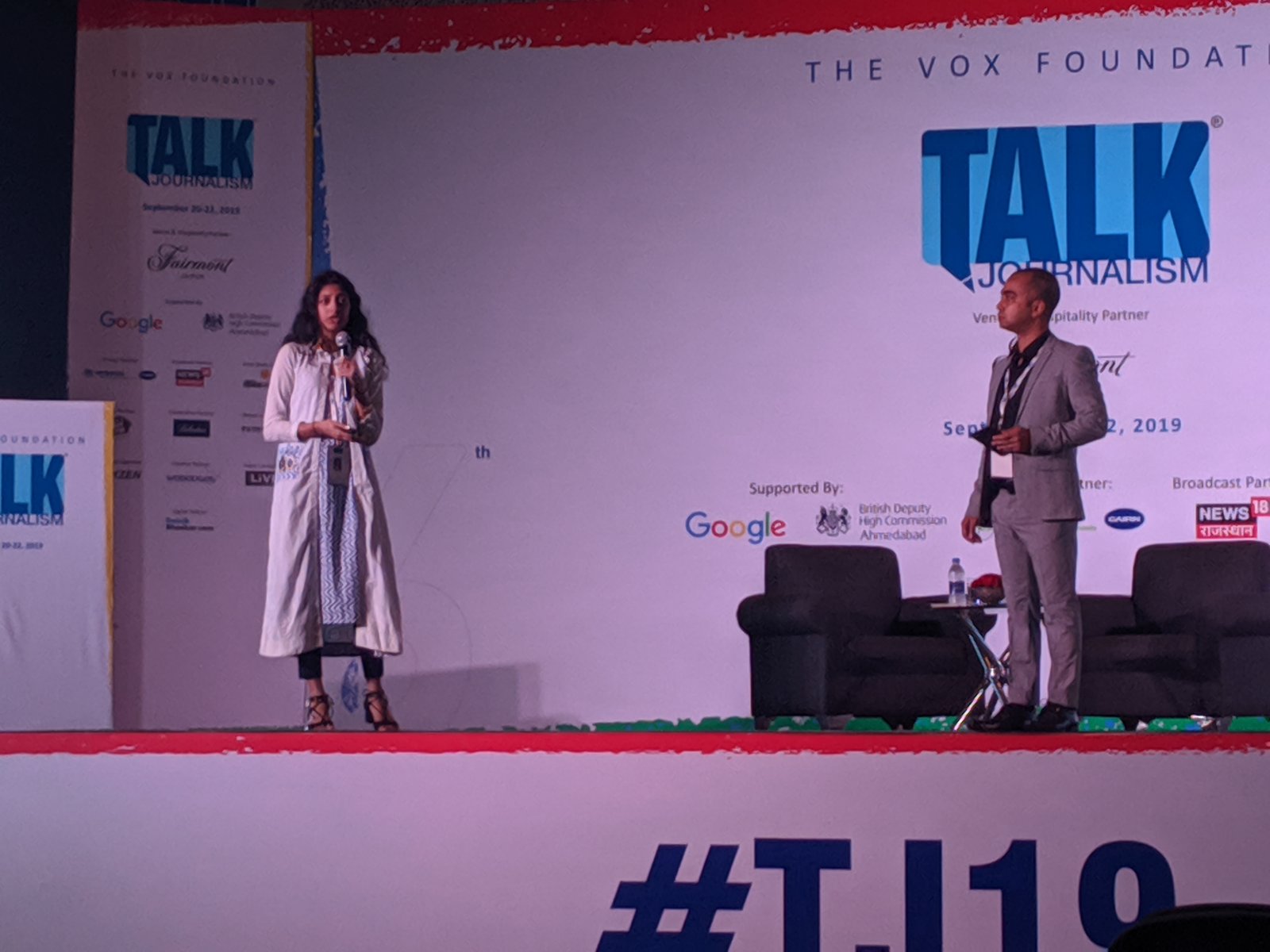In an era of dwindling freedom of speech, an organisation by the name of CPJ steps up to restore press freedom. Committee to Protect Journalists (CPJ) is a non-profit, non-government organization, which is collaborating to uphold the rights of a journalist. This is not the safest time to be a journalist, everyone can agree upon that.
“But then there are hundreds and thousands of journalists in India. Together we can do so much and stand up for press freedom,” urged Aliya Ifteqar, senior researcher in the Asia Programme of CPJ. Kunal Majumder, India correspondent of CPJ and Ifteqar discussed Press Freedom and journalists’ safety on the second day of Talk Journalism in Jaipur.
Aliya began the presentation with how unsafe it is for journalists to profess their profession followed by a dialogue on how anyone who is even a little critical of the government is termed an “anti-national”. The speakers representing the CPJ, which keeps track since 1992 on mistreatment on journalists, repeatedly mentioned how bureaucrats and authorities discredit honest and critical reporting. They go to the limits of terming it as “fake news” whenever the press is not in favour of them.
The records on the website of CPJ show that 1350 journalists were killed since 1992. Last year, 54 journalists died in India, and this includes the ones who were killed in the line of duty due to mishaps. But 34 of them were strategically murdered because of their content and reporting. Last year, out of the 5 journalists killed in India, 4 were assassinated because of the content they produced.
Kunal threw light on a few instances. “Chandan Tiwari, a local reporter in Jharkhand was lynched last year in October, according to the police charge sheet,” he said. He talked about a stringer for Dainik Bhaskar, Pradeep Mandal, who was killed for reporting on illegal sand mining. Another journalist, Sandeep Sharma was run over by a truck because of his report on the same issue”. He added, “88% of the journalists attacked majorly cover local issues. Two out of the four journalists killed reported on illegal sand mining. ”
Aliya quipped, “Out of 35 murders since ’92 only 3 have been solved. The attackers are not accountable and do not face the consequence of their actions, unfortunately. CPJ is against disproportionate actions against journalists. We don’t think they should face physical attacks, we don’t think they should be killed or imprisoned for their reporting. Now, if someone feels offended by something a journalist has written, there should be legal means to address it. Civil defamation is still a manner to object.”
However, both speakers raise concerns that newsrooms spend much of their valuable time and resources to fight the criminal defamation cases filed by huge political authorities. They say that this is also a form of harassment like threats and intimidation. Online trolling and revoking sponsorships are a few other ways of manipulating and troubling journalists.
Kunal was in Kashmir last week to cover the actuality. His observations were ” Sitting in air-conditioned rooms and debating about the issue is easy, but one comes face to face with reality when one lands in Srinagar. He struggled to connect with his colleagues. Who uses landlines anymore, anyway? What is happening in Kashmir is not being recorded at all. The scenario beyond Srinagar is not obtainable. Local reporters are being stopped from moving.”
“Why should the rest of the world be concerned about the Kashmir issue?” said Aliya in a reflecting tone, “It is the 48th day today of blackdown. Journalists are struggling to raise their voices. They are scared to produce a single report. They are being tortured by troops. People are stopped from getting information about their neighbours. It is a question of the validity of our fundamental rights. At the same time, Kashmir is a volatile issue”.
CPJ also followed the Asif Sultan case, in which he was detained and then imprisoned officially after a week because of his reporting. He was repeatedly questioned and harassed in confinement. Sadly, this groundbreaking news found no coverage in Indian media.
Because of obvious political propaganda and business interests, the overall model of media in India is bound to be manipulated. “The first step is to establish independence from the government and political interests,” said Aliya. “Secondly, there are a lot more journalists than the authorities. Journalists must push the pressure back and say “when you mess with one of us, you mess with all of us.” And journalism should be regardless of political leaning.”
In the end, Aliya urged that standing up of press freedom and journalists’ safety should not be a controversial thing. “Journalism is a public service industry, ultimately”.
Text: Pratyusha Roychowdhury | Copy Edit: Niharika Raina | Photo: Pratyusha Roychowdhury | Photo Desk: Sagar Samuel | Editorial Coordination: Rupali Soni & Niharika Raina


